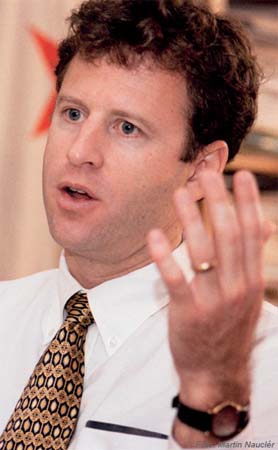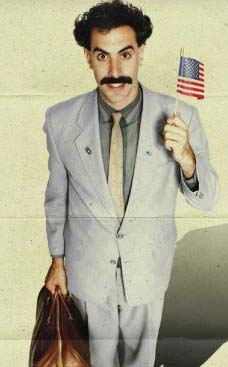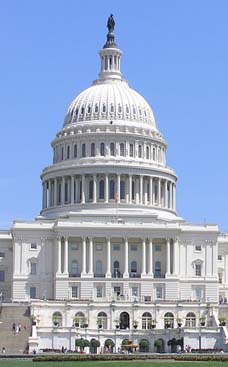
"Saudi Arabia may be America’s most unnatural ally, in terms of political system and cultural affinity—and with the Cold War over and the anti-Soviet agenda no longer linking Riyadh and Washington closely, that fact also makes the U.S.-Saudi partnership quite vulnerable. When you think about it, Bronson’s thesis is not so radical to anyone who remembers their Cold War history. But the relationship has been so scrutinized and polemicized since 9/11 that a clear-eyed book about its past and its future can do a great service without reaching to establish and prove a radical thesis. " Michael O'Hanlon, a Senior Fellow at the Brookings Institute and a Visiting Lecturer at Princeton University, served as a Peace Corps Volunteer in Congo Kinshasa.
Michael O’Hanlon writes: Beyond Petroleum
Beyond Petroleum
by Michael O’Hanlon
01.03.2007
Rachel Bronson, Thicker than Oil: America’s Uneasy Partnership with Saudi Arabia (New York: Oxford University Press, 2006), 384 pp., $28.00.
Rachel Bronson’s new book, Thicker than Oil: America’s Uneasy Partnership with Saudi Arabia, is a gem. Along with George Packer’s Assassins’ Gate, it is one of the more informative and path-breaking books on the region of the last three or four years. It is a solid and readable history, and a compelling analysis, done at just the right level of detail (about 350 pages) and with just the right balance between policy pragmatism and idealism.
Bronson gets off to a great start before the reader even opens the book. It is usually an accomplishment, in a short title, to find something that either sounds clever or conveys one’s thesis. Bronson does both. Her main point is that that the U.S.-Saudi relationship has been based on much more than oil for security, is unmistakable at first glance. At the same time, her subtitle points to the difficulties in this relation of two very different kinds of countries with two hugely different views of the world. Saudi Arabia may be America’s most unnatural ally, in terms of political system and cultural affinity—and with the Cold War over and the anti-Soviet agenda no longer linking Riyadh and Washington closely, that fact also makes the U.S.-Saudi partnership quite vulnerable.
This thesis is driven home compellingly in the book’s prologue and first chapter—for those who don’t have the time or interest to read a full tome on the U.S.-Saudi relationship, much can be gained from the usual “Washington read” of these opening pages plus the last couple chapters and jacket material. When you think about it, Bronson’s thesis is not so radical to anyone who remembers their Cold War history. But the relationship has been so scrutinized and polemicized since 9/11 that a clear-eyed book about its past and its future can do a great service without reaching to establish and prove a radical thesis.
However, any reader should be encouraged to read the whole book. It is an excellent history of not only the informal U.S.-Saudi alliance but also of Saudi Arabia itself. The style of this book leans in a slightly academic direction, but it reads more like enjoyable history than tortured political science prose. Bronson is indeed a political scientist and a very sophisticated one, but she has remembered to write for a general public policy audience. The book is rock solid in footnotes and clear and careful in presentation of facts. But it is fun at the same time.
Bronson is not afraid to challenge much of today’s pop wisdom about the kingdom, never in a gratuitous or angry tone but with directness and clarity. She writes, for example, “Books and movies that spotlight a particular president’s close relationship with Saudi Arabia miss the point that almost every administration since that of Franklin Delano Roosevelt has had close ties to the kingdom. . . . The reason for this has much to do with Saudi Arabia’s oil holdings and vulnerable security situation, but also with a set of mutually shared global interests defined during the Cold War, interests that have since crumbled.” To be sure, there were periods, such as during the Kennedy Administration, when Egypt attracted more American attention; the Arab-Israeli wars in tandem with Saudi oil embargoes also put huge strains on the relationship. But core interests in oil, security and countering communism kept the two countries consistently close.
Driving the point home, while also showing no fear of challenging America’s most prominent foreign affairs writers, Bronson writes, for example, that “when Thomas Friedman states in the pages of the New York Times that the United States has treated Arab oil-producing states ‘like big, dumb gas stations, and all the U.S. cared about was that they kept their pumps open and their prices low’”, he misses a good portion of the politics and political context of the last half century.
The book tells the history of Saudi Arabia in a pithy yet textured way. Bronson clearly recounts events from the formation of the alliance between the House of Saud and Muhammad ibn Abd al-Wahhab in 1744 which ultimately conquered the peninsula decades later, to the discovery of oil in Saudi Arabia in 1932 and the subsequent 1933 award of oil drilling rights in the kingdom to an American firm (whom King Abdel Aziz preferred for their distance, straightforwardness and lack of colonial associations or ambitions), to Saudi Arabia’s coming of age as a major oil producer in the late 1940s, to the cataclysmic and fateful events of 1979 that led Crown Prince Fahd to tolerate religious extremism more than he might have otherwise—the seizure of the Grand Mosque of Mecca, along with the fall of the Shah of Iran and Soviet invasion of Afghanistan that same year. There is enough real history to make it an enjoyable read, but is concise enough to also make it a highly usable review for the busy policymaker and the generalist. And Bronson proves beyond a doubt that she is the reader’s friend with concise summaries at the end of most of the book’s chronologically organized chapters.
But the heart of the book is the history of the relationship during the Cold War period—leading up to the fateful 17 years that have since followed. She recounts the development of the military relationship going back to World War II, the gradually growing American role in the region starting with the Truman and Eisenhower Doctrines and culminating in the Carter Doctrine after the Soviet invasion of Afghanistan, the acceleration of American arms sales to Saudi Arabia in the Johnson and Nixon and Reagan years, and the increasing shared interests between Washington and Riyadh in countering Soviet aggression or other communist movements from Afghanistan to Central America to the Horn of Africa and elsewhere.
And in the end, Friedman winds up being right in an important way, especially about our present predicament. With the Cold War over and the joint struggle against communism no longer providing a unifying purpose for the U.S.-Saudi relationship, the relationship has taken on more elements of a marriage of convenience. Unless Saudi Arabia can become a key facilitator of the Middle East peace process, or more of an ally than a problem in the broader struggle against violent jihadism, or an important example of reform for other Arab states—the latter being an especially dubious proposition—the partnership could permanently lose much of its cohesiveness.
To be sure, the Saudis have made progress since September 2001, and especially since the spring of 2003 when jihadist attacks against their own people on their own soil shook Saudi leaders enough to make them pursue Al-Qaeda operatives with purpose. Bronson clearly summarizes the progress while also underscoring its limitations:
While Saudi Arabia has effectively focused on what goes on inside the kingdom (e.g. better regulating domestic charities, monitoring wire transfers, destroying local Al-Qaeda cells, working shoulder to shoulder with the fbi inside the kingdom), it has been slower to tackle the international dimensions of the problem. The U.S. Treasury Department continues to observe that the kingdom has not yet addressed the problem of cash couriers, who easily transit the kingdom. In testimony before the Senate Committee on Banking, Housing and Urban Affairs in July 2005, Treasury undersecretary-designate Stuart Levey made clear that ‘even today we believe that private Saudi donors may be a significant source of terrorist funding, including for the insurgency in Iraq.’ Most troubling is the Saudi government’s decision to define major Islamic organizations as multilateral organizations rather than charities. . . .Defining these groups as multilateral organizations rather than charities removes them from Saudi Arabia’s post-September 11 strict account controls and monitoring requirements.
Municipal elections have now occurred, but for seats of limited power and without female suffrage; the press is hardly free but a great deal more leeway is now allowed on matters such as religious discourse.
If Bronson’s book has a limitation it is perhaps that it fails to lay out a sufficiently ambitious vision for how Saudi Arabia itself might reform. Her policy roadmap is incrementalist, seeking to build on openings such as municipal elections and get Saudi Arabia meaningfully involved in any future Middle East peace process. But incrementalism may not suffice—with Iraq teetering on the edge of collapse, Iran nuclearizing, the Middle East peace process defunct, Saudi unemployment sky-high (and hence disillusionment of the large youth population likely to intensify), Saudi educational and religious systems still spewing too much hate, and a whole new generation of leaders likely to emerge in a decade or so (as the sons of King Abdel Aziz pass from the scene and his grandsons stand to inherit the kingdom). Under these circumstances, my only request would have been a more soaring view of where the kingdom, and the U.S.-Saudi relationship, need to aim in order to deal with the historic challenges of the day, and to try to put what has become in many ways a very unnatural alliance on more solid footing. That said, policymakers still have to be pragmatic and incrementalist nine times out of ten, and the public would do well simply to be better informed about Saudi Arabia and America’s history with it. In helping others to achieve these important goals, Bronson could not have easily written a much better book.
Michael O’Hanlon is a senior fellow at the Brookings Institution.


















